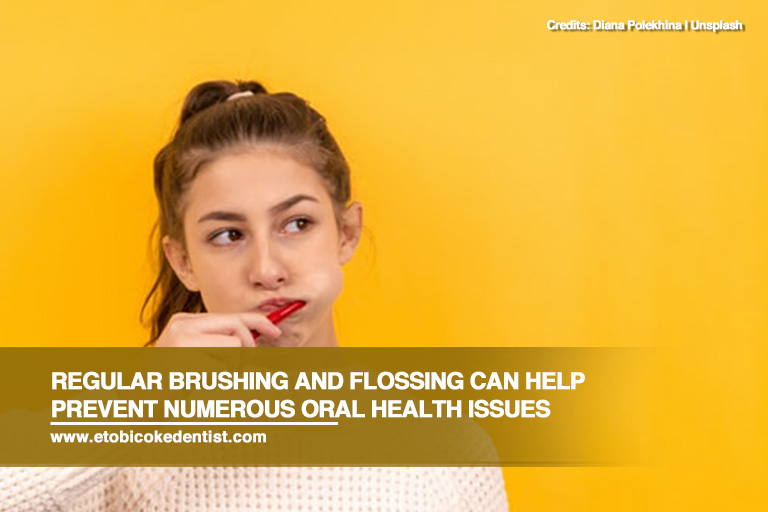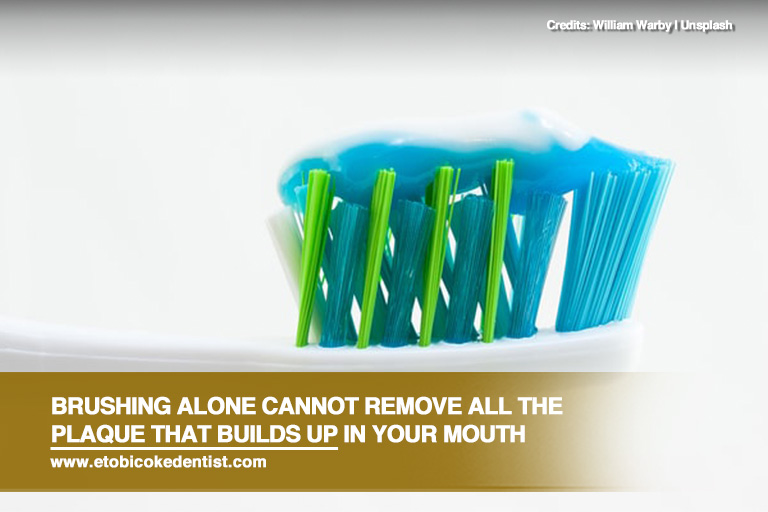Your dentist recommends that you floss daily. But like many others, you might only floss when you have something stuck between your teeth. Perhaps you doubt the efficacy of flossing entirely.
The question is: is flossing really important?
What Is Dental Floss and How Does It Work?
Dental floss is basically a nylon cord made of thin filaments that are meant to go in between your teeth and remove plaque or food debris that might have gotten stuck. It cleans the nooks and crannies of teeth that the bristles of your toothbrush can’t reach. Toothbrush bristles are designed not only to be able to clean teeth but to also be rigid enough to have sufficient abrasion to remove plaque on the surface of your teeth.
Why Do Doctors Recommend Flossing Daily?
The main thing that brushing and flossing are meant to remove from your mouth is plaque. Plaque is a sticky film of bacteria that constantly forms on the teeth. These bacteria thrive on the sugars in what you eat and drink. Consequently, these bacteria will eat away at your enamel and cause cavities and gum disease.
Since plaque is difficult to remove, your typical toothbrushes are designed to be gentle on the gums, but still retain sufficient rigidity to remain abrasive. This abrasion is what removes plaque from the surface of your teeth.
Since these bristles cannot be made thin enough to get in between the gaps of your teeth, this is where dental floss comes in. Dental floss is a cord that is thin enough to get through these gaps and remove the debris and plaque in between your teeth.
The main reason why your dentist recommends flossing daily is that this prevents the build up of harmful plaque in between your teeth which will cause serious gum disease. There are arguments that posit that mouthwash can do the job without having to be as laborious as flossing. However, plaque is extremely sticky and viscous, so you still need to remove them by flossing.
Benefits of Regular Flossing

We’ve established that flossing regularly is important. Here’s how it can benefit your teeth.
Removes Plaque
Plaque bacteria can produce acids that eat away at your tooth enamel. If these acids aren’t removed through brushing and flossing, they can cause cavities over time.
Furthermore, plaque can solidify and form tartar, which accumulates along your gum line. When this happens, you’re more likely to get gum disease.
Flossing on a regular basis can help eliminate food particles from between your teeth as well as plaque buildup.
Reduces the Risk of Developing Cavities
A cavity is caused by tooth decay and is a small opening or hole in the enamel, or the hard surface of your teeth. Although this process takes time, the more plaque on your teeth’s enamel, the more likely you are to develop a cavity.
Flossing between your teeth once a day can help remove food particles and plaque accumulation from between your teeth, reducing your risk of tooth decay.
Prevents Gum Disease
The initial phase of gum disease is gingivitis. Inflammation around your gums is one of the earliest indicators of gingivitis. When you clean or floss your teeth, your gums may bleed.
If gingivitis isn’t addressed, it can progress to periodontitis, a more serious infection. Your gums may recede or peel away from your teeth as a result of this. Your teeth may become loose due to a lack of bone support. Periodontitis, if left untreated, can trigger an inflammatory response throughout your body.
Gum disease can be reduced by brushing your teeth twice a day and flossing once a day. Regular cleaning by your dentist every 6 months can also help to keep your gums in good shape.
Prevents Bad Breath
Halitosis is a prevalent problem. Flossing can help keep bad breath at bay.
When food becomes lodged between your teeth, it begins to rot slowly. It is possible to have foul-smelling breath if you do not remove the food particles. Plaque can also develop cavities and periodontal diseases, which contribute to bad breath if they build up around or between your teeth and begins eroding your tooth enamel.
How Often Should You Floss?

Doctors recommend that you floss daily for at least 2 minutes a day to prevent the build-up of plaque. Others include flossing in their morning oral health care routine, while some will prefer one final flossing session before bedtime to get rid of the food debris that has accumulated throughout the day.
To make flossing even more effective, be sure to floss before you brush your teeth. While flossing, you loosen the plaque and debris in between your teeth, this makes it easier to brush off the food particles.
Consult Your Dentist
Different patients will require different oral healthcare practices. The best way to get yours right is to consult your dental health professional. Turn to Dr. Mark Rhody Dentistry for a professional consult. Call us at (416) 231-428
